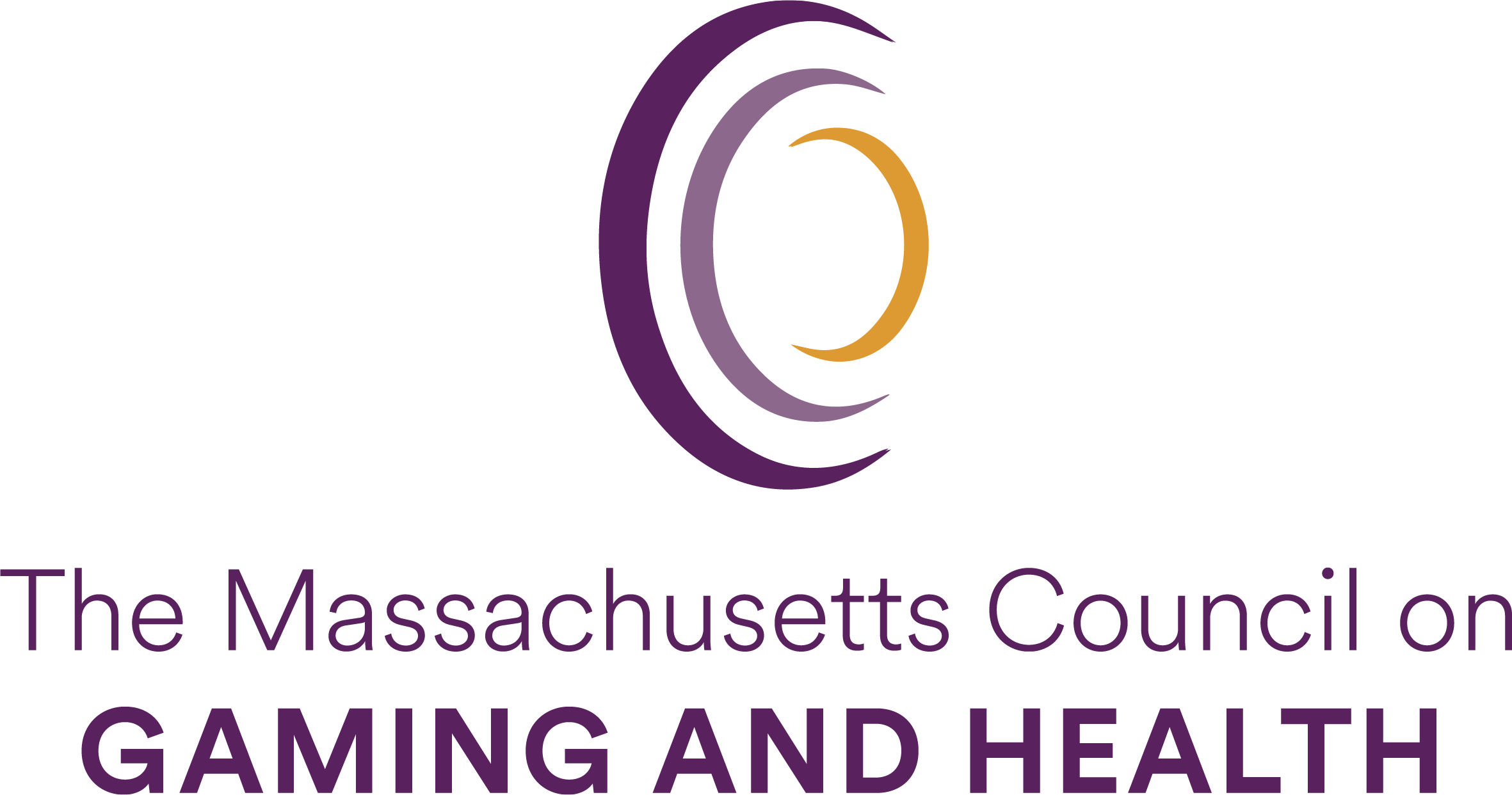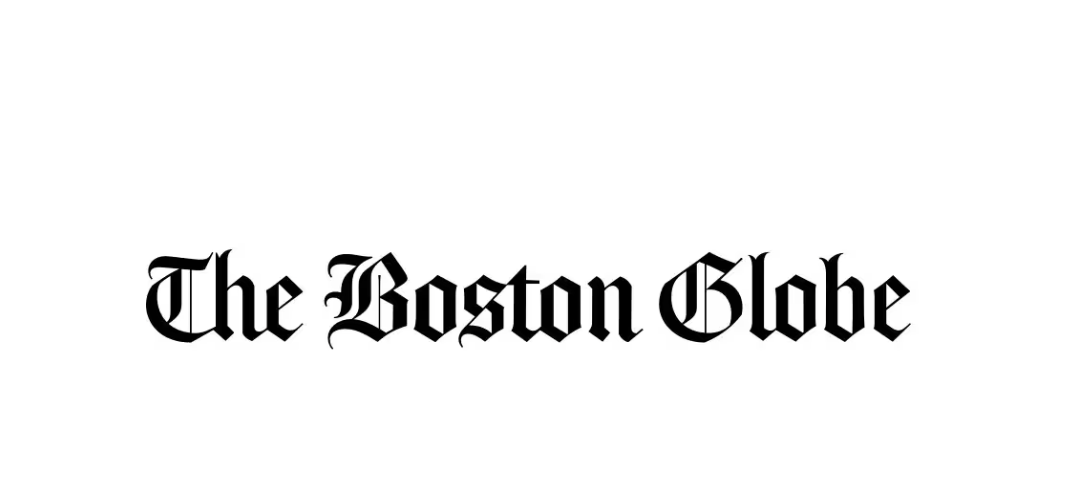Haraden Bottomley, a journalism major at Boston College, shared his personal reflections on sports betting and its impact on college campuses.
With the recent expansion of legalized sports betting in Massachusetts, we welcomed his unique perspective as a college student in this growing, ever-evolving world. Chief Communications Officer Phil Sherwood provided background for the piece.
Note: Views expressed in the below piece remain the observations and opinions of the guest contributor and do not represent or reflect official stances of MACGH.
The House Always Wins
For the last few months in Massachusetts, it seems as if every commercial, billboard, TV sporting event, and internet advertisement has featured a celebrity face touting a sportsbook offering hundreds of dollars in “free money.”
It sounds like an attractive offer, though some skeptics have responded: “There’s no such thing as free money.”
As a traditionally risk-averse person, I figured I would make a leap of faith in the name of journalism and find out.
As someone who has never gambled on sports, I found myself in a unique position. If I exposed myself to the highs and lows of sports gambling, I could record my thoughts, feelings, experiences, and behavior. Combined with research and expert input, these observations could offer some insight into why so many people — especially college-aged males like me — fall victim to problem gambling.
That was about when, as I explained this plan, my mother stepped in.
She skeptically suggested that, under the veil of research and journalism, I might end up adding a new vice to my life. So I calmed her with a promise not to risk more than the minimum amount of money necessary.
Maternal approval secured, I pushed on with my experiment and downloaded DraftKings and FanDuel onto my phone.
The rollout of mobile betting in Massachusetts came just in time for one of the biggest sports events of the year: March Madness. The national tournament features the top 64 college basketball teams in the country. Known for its shocking upsets and unpredictable nature, it can offer major paydays for the luckiest bettors and big disappointment for the unluckiest. Americans were expected to gamble a total of $15.5 billion on the tournament, according to the American Gaming Association.
Unfortunately, I am not as well-versed in college basketball as many of my peers. This raised some concerns in me. I was staking money on something I didn’t fully understand.
But like the worker who gives in and joins the office bracket pool every year, I convinced myself that “it’s so random” and “there’s really no need to understand the specifics.” Also, if I made most of my bets on gut feeling, maybe the losses wouldn’t hurt as much as if they had been well researched and thought out.
The sign-up process for DraftKings is designed to be as painless as possible, whisking the user through a series of questions. I quickly entered my home address, legal name, and the last four digits of my Social Security number. An old internet safety lesson rattled around in my head about not disclosing sensitive personal information online, but my desire for that free $200 outweighed those fears.
My first wager was a $5 bet on Providence College’s underdog men’s basketball team to win in the first round of the tournament. This bet on DraftKings triggered the advertised promotion, and I soon had a better understanding of what the offer truly was. Instead of a $200 credit to my account, I got eight $25 “bonus bets” to be used within a week of signing up. I lost that initial $5 bet on the Friars, but my bonus bets gave me new hope.
“Frankly, many of these advertisements and offers are misleading and deceptive,” said Phil Sherwood, communications director for the Massachusetts Council on Gaming and Health. “I can see how someone would get excited about ‘free money,’ but we don’t fully understand the long-term repercussions yet.”
A win through a sportsbook, a company or individual that accepts bets from sports bettors, typically credits the bettor with his original wager, in addition to his winnings for correctly predicting the outcome. The $25 value of the bonus bets is not credited back, however, whether the bettor wins or loses. This encourages players to build large parlays or make more unlikely bets for the payout to be worth it.
There’s a lot of additional promotional content on the apps to encourage more betting. Referring a friend to sign up for DraftKings, for example, gets both players $100 in bonus bets. I tried to keep track of how many people asked me to use their referral codes but soon lost count after the number reached double digits.
The people most susceptible to problem gambling are adolescent males between the ages of 18 and 24, according to the National Institute of Health. Ten percent of college students report having gambled in the previous month, compared to 2 percent of the general public.
“The driving factors now include the accessibility of gambling, how much of it’s online, and even how it’s embedded in video games that are naturally attractive to younger people,” said Sherwood.
Previous research studies find that gambling addictions occur in 1 to 6 percent of gamblers, but those proportions double among people who live near casinos or gambling establishments. Putting the opportunity to gamble as close as a phone has a similar effect.
For the entire first weekend of mobile betting in Massachusetts, the only topic of conversation at parties, bars, lunch, and anywhere else that students congregated was sports betting and that “free money.” I wish I could have invited the board of DraftKings to walk around the campus or brought them to a party just to watch them salivate.
Hundreds of dollars were being wagered by nearly every partygoer, their faces illuminated by the glow of sportsbook apps on their phone screens. Women were approaching men, complimenting their sports knowledge or their outfits to get them to share their picks. (Apologies to the woman I told to bet on Kansas because they were a “sure thing.”) Rather than dancing or mingling, at least half of the people at parties crowded around TVs, craning past each other and bickering loudly over the music about where the smart money was.
“Gambling can be fun. Sports betting can be fun,” said Sherwood. “But when you normalize gambling behavior with young kids in stadiums and on TV, it sets the table for them to develop a gambling problem.”
I thought there’d be less betting away from the parties and without alcohol. Instead, I woke up the morning after one such gathering to find my neighbor betting $50 on the Chinese Basketball Association because, in his words, “that’s the only thing I can bet on this early.” Since then, I’ve seen friends wager on Israeli women’s basketball, Austrian tennis, Swedish handball, and Russian table tennis, just to name a few.
Sherwood draws an important distinction between gambling and other forms of addiction, explaining that other states have seen people go from never betting to hitting rock bottom within months of legalization. “Usually addiction is a slow-motion event over years, like alcoholism or a drug problem, but with gambling, all of the sudden a person loses 20 grand in six weeks,” he said.
Having placed only one $5 bet and lost, I didn’t understand how this thing could be so captivating that people would subject themselves to watching sub-par international sports or risking their next mortgage payments. So far, all I had done was lose a morning’s coffee money. Very quickly, my outlook began to change.
Enlisting the help of friends more knowledgeable than me about basketball, I decided to put together a few bets for the second day of the tournament and begin my experiment in earnest. I took advantage of a variety of ways to bet to see how each one felt. For example, is it really that much fun to root for fewer points out of both teams? Or hoping that a team will win, but not by too much?
Online sportsbooks have devised a way to bet on essentially every aspect of the game, from the results of possessions to the statistics of individual players. Everything is on the table. Along with promotional offers and “free money,” providing more unique ways to bet helps sportsbooks draw customers away from competitors and bolster their market share.
Referral codes, promos, and unique bets are just a few of the strategies sportsbooks use to lure players. Books are constantly experimenting with new ways to expose more people to gambling. “By putting live scores and betting lines on our app with fantasy, existing fantasy users might be more likely to try making a wager,” said Andrew Thomas, a former product manager for DraftKings in charge of converting DraftKings players to the DraftKings sportsbook.
The wager that finally sold me on the allure of sports betting was a two-leg parlay on the second day of the NCAA tournament. For the bet to pay out, both legs must be correct. I was betting on what’s known as “the spread” in both games. For example, I picked Miami -2.5 over Drake in their first-round matchup, meaning the bet would win if Miami beat Drake by more than two and a half points. I also picked the underdog 16-seed Fairleigh Dickinson to lose by fewer than 26 points. Together, the two teams could turn my free $25 bonus bet into $66 to be deposited in my checking account.
The Fairleigh Dickinson game was first, and I was elated to watch FDU keep it close the entire game against top-seed Purdue. As three-pointers rained down and Fairleigh Dickinson defended against some of the best players in the country, I felt like a March Madness genius for backing the 16 seed with the shortest average height of any D1 basketball program. FDU ended up pulling out a win in a shocking upset, comfortably covering the first half of my two-leg bet.
That left the Miami Hurricanes responsible for my mood for the night. Traditionally, I am no fan of “the U.” As an ACC man alongside my beloved Boston College Eagles, I have often watched my sports hopes crushed by athletes dressed in green and orange. That night, however, you would have thought I was a lifelong fan.
Surrounded by a group of friends “riding” the same bet with me, I could hear my heart beating in my ears, getting faster with each consecutive possession. Every Miami basket was celebrated with loud claps and yells of encouragement, as if the players could hear us. Each Drake point was met with lamenting groans, calls for better defense, and complaints of poor officiating.
As the clock ticked down, the game was too close to call. I was in the midst of what I soon learned was called “a sweat,” or a wager that comes down to the final moments. It was also around this time that I finally understood the power of my emotional investment.
Some of life’s greatest moments come from risk or uncertainty. Opening a college acceptance letter, asking a girl on a date, or applying for a job are all stressful and take courage. That’s why many people would say some of their best memories are of when they took a risk and it paid off.
I was shocked when, at the end of that game, I felt just like I had when I told the girl I liked in high school that I had a crush on her. My hands were just as sweaty, my knee was bouncing, and I had the same familiar burning in the center of my chest. This ball of heat and stress beneath my sternum seemed to burn hotter with each passing second, growing and shrinking with every breath.
Miami fought hard as the game came to a close. After grabbing a rebound up by three with less than 20 seconds on the clock, Miami seemed like they were about to “cover,” or win within the spread. The room of bettors erupted in cheers as Miami dribbled out the clock for a final score of 63-56. The bet slip on my phone turned bright green and virtual confetti fell across the screen.
It was at that moment I had my second realization: Not only did betting feel like asking that girl I liked on a date, but the win felt exactly like it did when she said yes.
After my $66 win, there was no wiping the smile off my face. I was singing the praises of Miami players for the rest of the night, explaining my success to anyone willing (or even unwilling) to listen. I even stooped so low as to ask others about their bets that day, just so I could brag about my win. I felt on top of the world, patting myself on the back for “taking advantage” of the sportsbook and its “free money.”
It was that first win and the green $66 balance displayed prominently in the corner of the DraftKings app that made me understand the hook. The thrill of winning already had me obsessing about where my next $25 bonus bet would be spent – I caught my mind wandering in class, crafting parlays on my laptop, and reading the latest team news.
“One of the most common signs of a gambling problem is just a general preoccupation with gambling,” said Sherwood. “If you are always thinking about your next bet, what time you’re going to get to the casino, how much you’ll bet on different things, it’s more than likely you have a problem.”
It was this obsession and analysis that I would come to blame for my future betting failures and frustration. When I was gambling on the advice of friends or my own gut feeling, I didn’t have to blame myself when I lost. But losing a bet after hours of research was infuriating.
For each of my next five bonus bets, I made an increasingly complex and well-researched parlay, drawing on sources such as journalists, pundits, and Twitter gambling accounts. All of them promised massive payouts, and I felt certain I couldn’t fail. I then proceeded to lose every single bonus bet from that point forward — some by massive margins that left me feeling hopeless and stupid, and some so close that they elicited anger and waves of disappointment.
As a general rule, I hate to lose far more than I love to win. These losses made me irrationally upset, especially as I watched my friends spend hundreds of dollars in winnings on clothes, food, alcohol, and game consoles.
“Another sign your gambling habits might be problematic is ‘chasing your losses,’” said Sherwood. This is “when you make increasingly large and complex bets in an effort to win back the money you’ve lost.”
For problem gamblers, there are systems in place to help them recover. For example, the Self-Exclusion list puts a voluntary barrier between problem gamblers, casinos, and sportsbooks.
Just since the legalization of sports gambling in Massachusetts, there has been a 500 percent increase in sign-ups for the list.
It is vital that we address the darker side of gambling, which, when unchecked, can transition from a leisurely pastime to a destructive addiction. We must urge our legislators, community leaders, and relevant stakeholders to invest in the creation and maintenance of robust resources – be it counseling services, financial literacy programs, or support groups. Each of us also has a role to play; by staying informed, we can help identify the signs of gambling addiction in its early stages and guide those affected toward appropriate help. It is our collective responsibility to ensure that gambling remains a source of entertainment, not a gateway to hardship. The stakes are high, but so too is our capacity for compassion and action.




